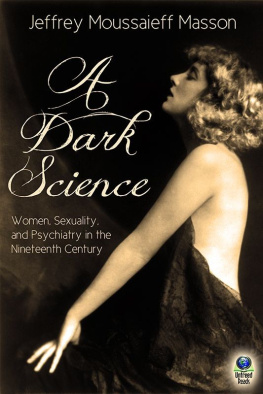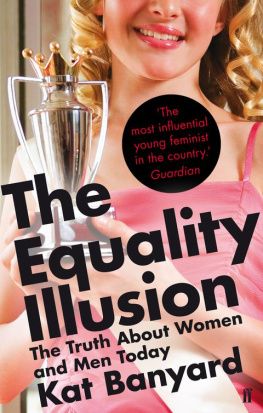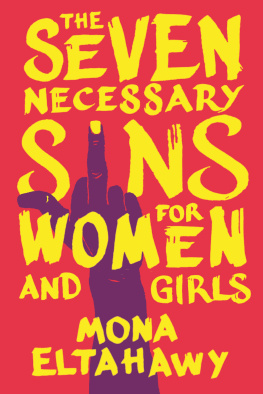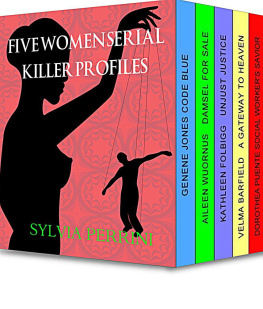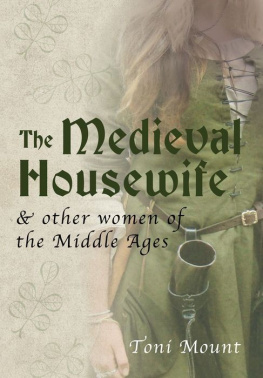THE VIOLENT ABUSE OF WOMEN
In 17th & 18th Century Britain
A Dog, a Woman, a Walnut Tree;
The more theyre beaten, the better they be.
Anon Old English Proverb
Happy are you, reader, if you do not belong to this sex to which all good is forbidden.
galit des hommes et des femmes Marie de Gournay (1622)
How wretched is a womans fate,
No happy change her fortune knows;
Subject to man in every state,
How can she then be free from woes?
Womans Hard Fate Anon (1733)
Woman a pleasing but a short-lived flower, Too soft for business and too weakfor power: A wife in bondage, or neglected maid; Despised if ugly; if shes fair betrayed.
Essay on Woman Mary Leapor (172246)
Women are not so well united as to form an Insurrection. They are for the most part wise enough to love their Chains, and to discern how becomingly they fit.
Some Reflections upon Marriage Mary Astell (16661731)
Thy husband is thy lord, thy life, thy keeper, Thy head, thy sovereign
A woman owes her husband the same loyalty a subject owes his king.
The Taming of the Shrew William Shakespeare (15641616)
the Moon hath no Light but what it borrows from the Sun, so women have no strength nor light of Understanding, but what is given them from Men.
The Worlds Olio Margaret Cavendish, Duchess of Newcastle (circa 162474)
THE VIOLENT ABUSE OF WOMEN
In 17th & 18th Century Britain
GEOFFREY PIMM
First published in Great Britain in 2019 by
PEN AND SWORD HISTORY
an imprint of
Pen and Sword Books Ltd
47 Church Street
Barnsley
South Yorkshire S70 2AS
Copyright Geoffrey Pimm, 2019
ISBN 978 1 52673 954 4
eISBN 978 1 52673 955 1
Mobi ISBN 978 1 52673 956 8
The right of Geoffrey Pimm to be identified as the author of this work has been asserted by them in accordance with the Copyright, Designs and Patents Act 1988.
A CIP record for this book is available from the British Library
All rights reserved. No part of this book may be reproduced or transmitted in any form or by any means, electronic or mechanical including photocopying, recording or by any information storage and retrieval system, without permission from the Publisher in writing.
Pen & Sword Books Ltd incorporates the imprints of Pen & Sword
Archaeology, Atlas, Aviation, Battleground, Discovery,
Family History, History, Maritime, Military, Naval, Politics, Railways,
Select, Social History, Transport, True Crime, Claymore Press,
Frontline Books, Leo Cooper, Praetorian Press, Remember When,
Seaforth Publishing and Wharncliffe.
For a complete list of Pen and Sword titles please contact
Pen and Sword Books Limited
47 Church Street, Barnsley, South Yorkshire, S70 2AS, England
E-mail:
Website: www.pen-and-sword.co.uk
By the same author - The Dark Side of Samuel Pepys (Pen and Sword History, 2018).
Introduction
The seventeenth and eighteenth centuries are the gateway between the medieval world and the modern, centuries when western societies moved from an age governed principally by religion and superstition, to an age directed principally by reason and understanding. By the end of the eighteenth century, mankind had acquired varying degrees of awareness of logarithms, electricity, calculus, universal gravitation, and the laws governing the motion of physical objects, liquids and gasses. The telescope and the microscope had been invented, enabling the new sciences to examine the greatest and the smallest components of creation. Many of the names that are synonymous with scientific and philosophical progress are to be found there. In the seventeenth century: Galileo, Kepler, Descartes, Pascal, Boyle, Huygens, Leeuenhoek, Leibniz and of course Isaac Newton. In the eighteenth century: Franklin, Herschel, Jenner, and Volta. Messier mapped the heavens and Priestly buried the theory of phlogiston by discovering oxygen. The first practical steam engine was designed by Thomas Newcomen and Edward Jenner invented vaccination against disease.
However, although the worlds of science and philosophy took giant strides away from the medieval view of the world, seventeenth- and eighteenth-century attitudes to women did not change from those that had pertained for centuries. Although many women had jobs, these were generally confined to domestic service or industries allied to catering such as brewing and baking. The professions were closed to them women were not permitted to become doctors, lawyers or teachers for example. It would be at least 200 years before women had access to higher education; colleges and universities were barred to them, even if they came from families who could otherwise have afforded to educate their female children. Girls were rarely permitted entry to the grammar schools of the period; even the early Quakers, who claimed to believe in female education, established very few schools for girls, although from the founding of the movement in the 1650s women were at least permitted to speak during Quaker meetings. However, even a century later the uncommon nature of this privilege elicited the now infamous quip from Doctor Samuel Johnson:
Sir, a womans preaching is like a dog walking on his hind legs. It is not done well; but you are surprised to find it done at all.
(Life of Samuel Johnson James Boswell 1791)
Neither was it only men who considered womens formal education to be unnecessary; sadly many women of the period also supported the view that their gender required no further schooling in anything other than that which concerned itself with religion or domestic duties:
I desire (if the child be a daughter) her bringing up may be learning the Bible, as my sisters do, good housewifery, writing and good works: other learning a woman needs not.
( The MotherS Legacie to her Unborne Child Elizabeth Jocelyn 1624)
Women who did have sufficient education and literacy to become authors invariably found themselves abused and ridiculed. Eliza Haywood (c. 16931756), was a writer, actress and publisher with more than seventy published works to her credit and now acknowledged to be an important founder of the modern novel. In her own time however, she was described by Jonathan Swift (16671745) as a stupid, infamous, scribbling woman, and by Colley Cibbler (16711757) actormanager, playwright and Poet Laureate as one of those shameless scribblers.
John Strype (16431737) clergyman, historian and biographer was very specific about what he considered it was seemly for girls for be taught:
There be also in and about the City, schools for the education of young Gentlewomen in good and graceful Carriage, Dancing, Singing, playing on Instruments of Musick [ sic ] Reading Writing French, raising paste [i.e. making bread and pastry] etc., which render Women, that have these commendable Qualifications, so much beyond others in their Behaviour, Conversation, and good Housewifery.



